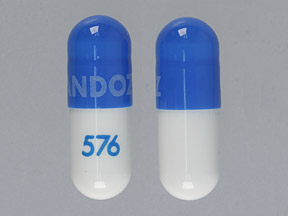Calcium acetate Interactions
There are 88 drugs known to interact with calcium acetate, along with 5 disease interactions. Of the total drug interactions, 3 are major, and 85 are moderate.
- View all 88 medications that may interact with calcium acetate
- View calcium acetate disease interactions (5)
Most frequently checked interactions
View interaction reports for calcium acetate and the medicines listed below.
- Aspir 81 (aspirin)
- Aspirin Low Strength (aspirin)
- Colace (docusate)
- Coreg (carvedilol)
- Coumadin (warfarin)
- Crestor (rosuvastatin)
- Eliquis (apixaban)
- Fish Oil (omega-3 polyunsaturated fatty acids)
- Lantus (insulin glargine)
- Lasix (furosemide)
- Levemir (insulin detemir)
- Lipitor (atorvastatin)
- Lyrica (pregabalin)
- Metoprolol Succinate ER (metoprolol)
- Metoprolol Tartrate (metoprolol)
- MiraLAX (polyethylene glycol 3350)
- Novolog (insulin aspart)
- Plavix (clopidogrel)
- Rena-Vite (multivitamin)
- Renal Caps (multivitamin)
- Renvela (sevelamer)
- Sensipar (cinacalcet)
- Synthroid (levothyroxine)
- Tylenol (acetaminophen)
- Vitamin B12 (cyanocobalamin)
- Vitamin C (ascorbic acid)
- Vitamin D2 (ergocalciferol)
- Vitamin D3 (cholecalciferol)
- Xanax (alprazolam)
- Zoloft (sertraline)
Calcium acetate disease interactions
There are 5 disease interactions with calcium acetate which include:
More about calcium acetate
- calcium acetate consumer information
- Compare alternatives
- Pricing & coupons
- Reviews (4)
- Drug images
- Side effects
- Dosage information
- During pregnancy
- Drug class: minerals and electrolytes
- En español
Related treatment guides
Drug Interaction Classification
| Highly clinically significant. Avoid combinations; the risk of the interaction outweighs the benefit. | |
| Moderately clinically significant. Usually avoid combinations; use it only under special circumstances. | |
| Minimally clinically significant. Minimize risk; assess risk and consider an alternative drug, take steps to circumvent the interaction risk and/or institute a monitoring plan. | |
| No interaction information available. |
Further information
Always consult your healthcare provider to ensure the information displayed on this page applies to your personal circumstances.


